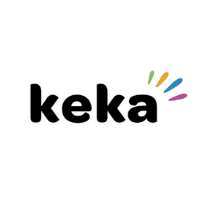2022 is a boundary-pushing year for Keka and the Indian HR sector
This year, the India Human Resources sector and companies like Keka have set its sights on enhancing the employee experience through significant tech innovations and solutions.
In the last few years, the Human Resources sector has faced hurdle and hurdle with workforces shifting and adapting to a new normal, a dynamic reallocation of resources, the push for digitisation and automation and finally evolving employee needs. More importantly, in these years, we have analysed and challenged fundamental questions such as where do we work, how do we work, and what technologies enable us to continue what we do successfully?
According to a 2021 McKinsey article titled ‘The new possible: How HR can help build the organisation of the future”, CHROs (Chief Human-Resources Officers) and other leaders must reimagine the very roots and basic tenets that an organisation grows from. The article continues, stating “Emerging models are creative, adaptable and antifragile”.
- a Hyderabad-based employee experience platform - embodies these three qualities. In the last seven years, Keka has established itself as SME HR tech leader that has focussed on simplifying complex workflows through strategic solutions and services in payroll and expenses, hiring and onboarding, performance and careers, time management and more - all while keeping sensitive employee information secure.
With 2021 challenging organisations to stretch and adapt to fundamental changes in the way we work, 2022 is all about pushing the boundaries of the new normal. Keka stands poised for this change and the trends that will shape the HR sector in the coming months.
Flexibility in the workplace
Even as offices around the world open up, many employees choose to engage in remote work, virtual operations or in hybrid workplaces. However, these options do present challenges for HR departments in organisations. Managing people across different locations, ensuring that they are healthy, engaged with the workplace, and have access to different HR products and services is no mean feat. Keka’s time and attendance service allows HR professionals to manage timesheets and leaves accordingly. Now companies can confidently manage their employee timings with tools like leave and attendance management, GPS / mobile attendance (for remote working employees) and shift management (through shift scheduling). Keka’s cloud management system integrates every aspect of time tracking - across locations, shifts, and overtime (which is fully integrated into payroll).
Cybersecurity - an emerging concern
The last two years have seen a boom in cybersecurity concerns, shaped by global scale events. Moreover, as companies continue to embrace and leverage digital technologies and solutions, HR professionals are tasked with handling increasing amounts of sensitive business data, including personal information, or salary details.
Keka has prided itself on the high standards of data protection. By employing a cross-functional approach to security, Keka ensures that the company's database access is restricted to three senior employees, and can only be accessed through independently designed authentication gateways. Keka’s internal customer support personnel will also require access to a client’s portal. By leveraging technologies like Amazon AWS cloud infrastructure and Microsoft Azure, Keka ensures that there is no local or on-premise storage of data. The company is also compliant with the EU’s General Data Protection Regulation, amongst other security measures.
Tackling ‘The Great Resignation’
In April 2021, a wave of resignations rolled over the US. This movement, known as The Great Resignation, was attributed by workers to overwork and the consequent burnout. India is no exception as attrition rates touched 21 percent in 2021 according to reports. Companies now have to figure out how to transform resignations into retention. According to the Harvard Business Review, employers should take a data-driven approach to improve retention. Keka offers analytics to identify workforce attrition rates, and other aspects of the workforce. Keka’s HR analytics also generates instant reports to help companies make swift and meaningful decisions. Subtle solutions like employee profiles by Keka can boost workplace productivity and pride. Finally, Keka’s Continuous Feedback Module offers managers insights to build a motivated culture and help keep their teams engaged and inspired.
The rise of HRTech
HRTech has become an exciting and innovative space in Human Resources, providing key solutions to enhance the employee lifecycle at every stage and create a vibrant work culture. Digital HR software like Keka are changing the name of the game. Today, many companies are looking at solutions like automation and AI to enhance their employee experiences, cloud-based HR for remote work, chatbots to create conversational experiences, gamification and wearables for improving employee well-being, and more.
Quote from founders on the change they see in HR, and how Keka plans leverage these changes to create an exciting 2022 for the company. Preferably 2-3 on various topics in the article.








